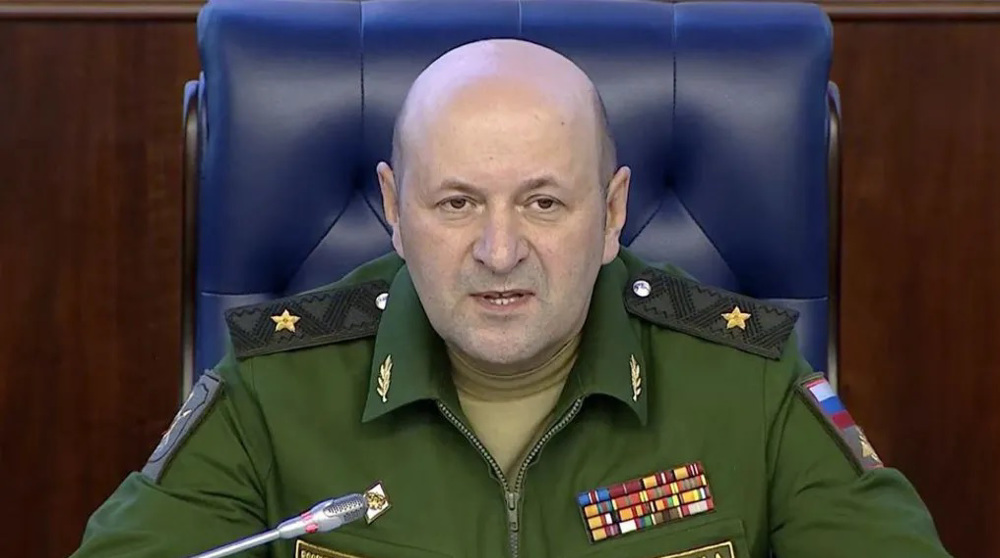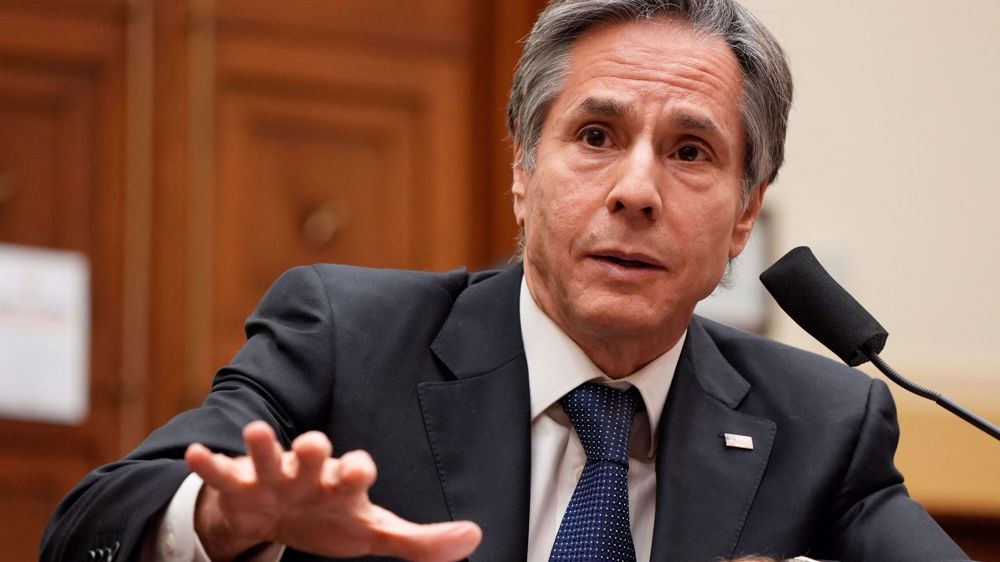US sends tons of weapons to Ukraine; Russia says West trying to 'suppress' it
A US cargo ship has docked in Ukraine’s Odessa port, delivering tons of military equipment and vehicles to the country’s armed forces, says a report.
According to local media, the ship will deliver 350 tons of military equipment, including 35 HMMWV military trucks, to Ukraine’s armed forces, with all equipment expected to be unloaded on Friday.
Back in January, the US delivered a batch of newly-made armored military trucks, known as the High Mobility Multipurpose Wheeled Vehicle (HMMWV).
Ukraine is currently in possession of hundreds of those trucks. Furthermore, the military has received armored modifications and medical ones.
Earlier his month, the US Department of Defense announced an additional $125 million package for the Ukraine military to cover training, equipment, and advisory support.
In total, Washington has committed over $2 billion in military assistance to Kiev since 2014.
In March 2014, the Black Sea peninsula of Crimea rejoined Russia following a referendum, in a move that the West branded as annexation of Ukrainian land by Russia.
In siding with Ukraine, the European Union and Washington imposed several rounds of sanctions against Russia.
Later in 2015, Kiev and Moscow signed a ceasefire deal in the Belarus capital Minsk with French and German support, but both parties have on numerous occasions accused each other of violating the ceasefire.
Kiev also accuses Russia of having a hand in a years-long armed conflict in the mainly Russian-speaking regions in eastern Ukraine.
The armed confrontations erupted in April 2014, when a wave of protests in Ukraine overthrew a democratically-elected government and replaced it with a pro-West administration. The majority in those areas refused to endorse the new administration.
After taking office, the new president of Ukraine Volodymyr Zelensky started exploring the possibility of talks with his Russian counterpart to resolve the conflict.
Russia has repeatedly warned the West against interfering in the Ukraine crisis, and strongly rejected the West’s allegations.
Russia warns against 'dangerous neocolonialism'
On Thursday, a Russian envoy to the United Nations warned about the West’s “policy of aggressive neocolonialism.”
A spokesperson for the Russian permanent mission to the UN, Stepan Kuzmenkov, told a UN General Assembly meeting that “the policy of aggressive neocolonialism advanced by Western states poses a threat.”
He said many countries "defending sovereignty and independent foreign policy course are subjected to economic blockade, illegitimate unilateral sanctions, while their domestic affairs are openly targeted by interference."
"This vicious practice runs counter to norms and principles of the UN Charter, and it should be ended," said the Russian diplomat.
West trying to suppress, contain Russia
Russia President Vladimir Putin’s spokesman Dmitry Peskov said the West and the United States are clearly seeking to contain and suppress Moscow.
"A deliberate policy aimed at containing and suppressing Russia is clear enough,” he said on Thursday.
'Psychological war' against Russia
An advisor to President Putin also accused the US and its Western allies of waging “a psychological war” against Russia, as a direct armed confrontation with the nuclear power is unrealistic.
“A new type of warfare... is starting to appear,” said Putin’s defense advisor Andrei Ilnitsky
“I call it, for the sake of argument, mental war. It’s when the aim of this warfare is the destruction of the enemy’s understanding of civilizational pillars,” he added.
He said Washington also wanted to alter how Russians think in a “war...for people’s minds.”
Ties between Russia and the US have hit a new low after US President Joe Biden said in an interview last week that Putin was a “killer” and that he would have to "pay a price" for alleged interference in the 2020 US presidential election.
Putin’s spokesman Dmitry Peskov said in response that Biden’s remarks showed he had no interest in fixing ties with Russia.
The Biden administration is expected to impose sanctions on Moscow over the allegations.
Biden's administration has already imposed sanctions against Moscow over the imprisonment and alleged poisoning of pro-Western blogger Alexey Navalny in 2016.
D-8’s role in Iran’s economy after Cairo summit
China slams US as ‘war-addicted’ threat to global security
China ‘firmly opposes’ US military aid to Taiwan
VIDEO | Press TV's News Headlines
President Yoon Suk Yeol to be removed from office
At least 19 Gazans killed by Israeli airstrikes since dawn: Medics
Leader: Iran neither has nor needs proxy forces
US fighter aircraft shot down ‘in friendly fire’ amid aggression on Yemen













 This makes it easy to access the Press TV website
This makes it easy to access the Press TV website